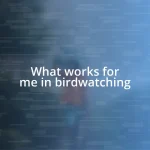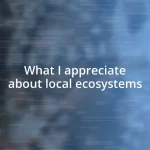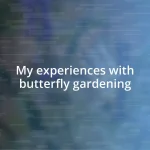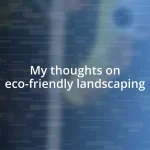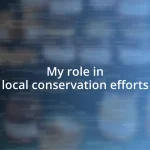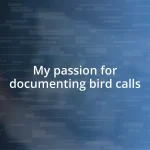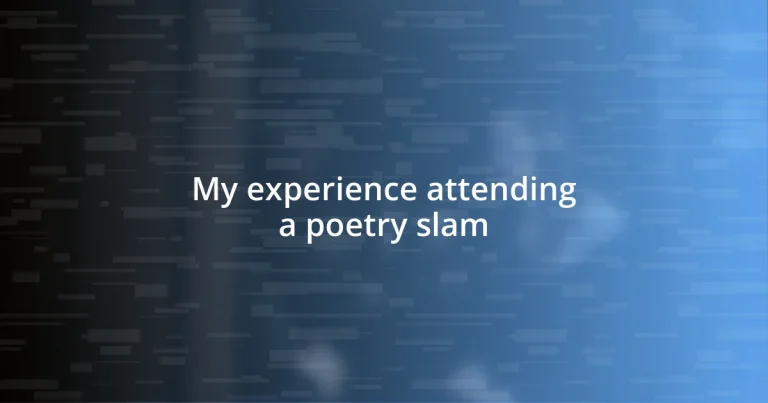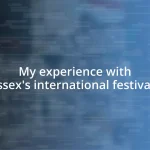Key takeaways:
- Practicing and performing in front of friends boosts confidence and helps refine emotional delivery.
- Choosing poems that evoke strong emotions and connect with the audience enhances the performance experience.
- Networking with fellow poets fosters community, collaboration, and inspiration for personal growth as an artist.
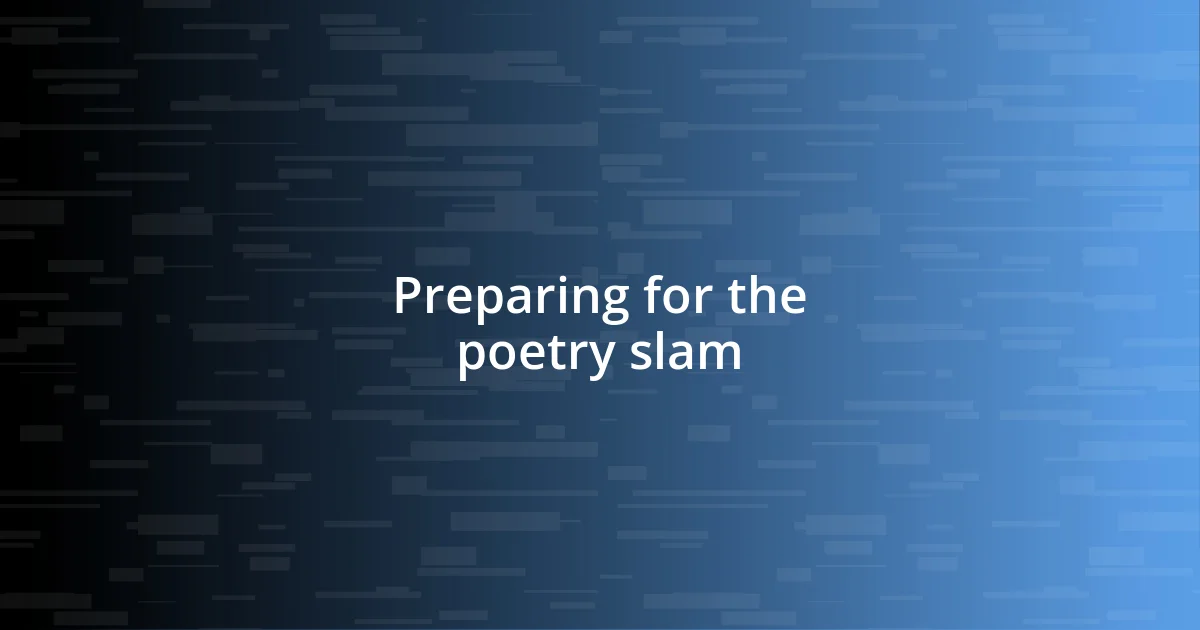
Preparing for the poetry slam
Preparing for a poetry slam can feel a bit like gearing up for a performance. I remember pacing in my living room, rehearsing my piece until the words flowed naturally. Have you ever found yourself lost in a poem, feeling every word tug at your heart? That’s the kind of connection you want to achieve on stage.
Another crucial step is choosing the right poem. I struggled with this initially—should I go for something deeply personal or a piece that strikes a universal chord? It’s a balance; your choice should resonate with both you and the audience. Picture yourself standing there, baring your soul; does your selected work invite the audience into that experience?
Lastly, don’t underestimate the power of practice. I learned the importance of performing in front of friends before the actual event. Their feedback was invaluable, and I felt so much more confident after hearing their reactions. Have you considered who your trusted audience might be? Sharing your work before the slam can help you refine not just your delivery, but also the emotional tone of your piece.
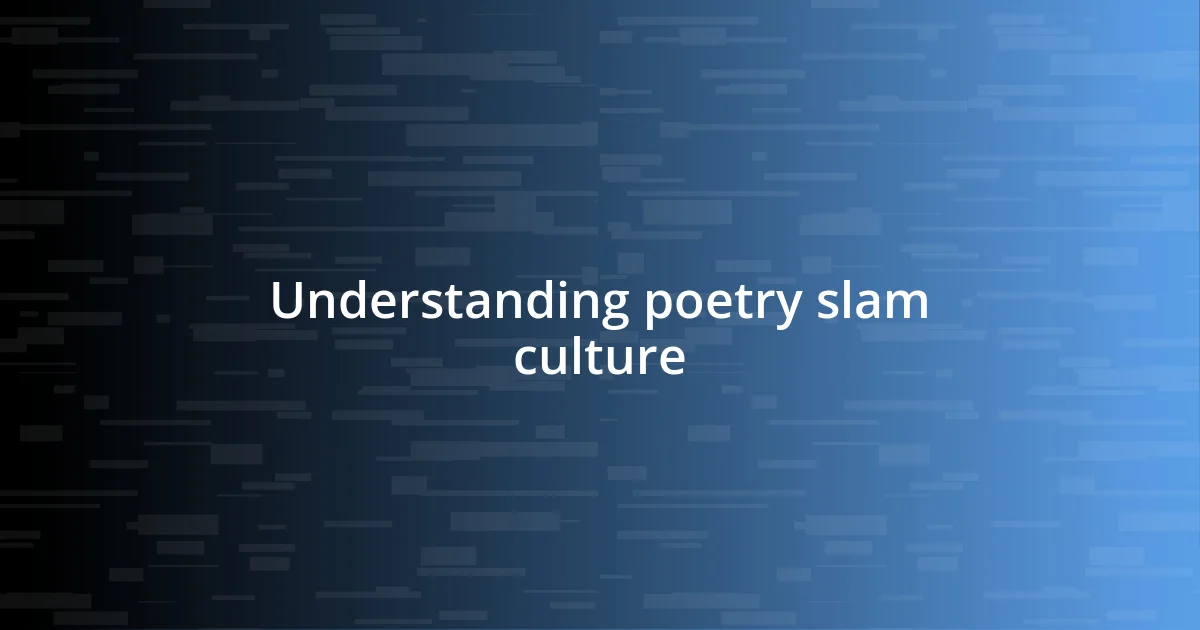
Understanding poetry slam culture
Stepping into the world of poetry slam is like diving into a dynamic ocean of creativity. Each event feels alive, charged with energy from passionate poets and enthusiastic audiences. I vividly recall my first slam; the atmosphere was electric, and the variety of voices made every performance unique. The beauty of poetry slams lies in the diverse expression—every poet shares a fragment of their world, inviting the audience to explore new perspectives.
Here are some key elements that define poetry slam culture:
- Open Expression: Poets tackle personal and societal themes, often reflecting their experiences and emotions.
- Community Engagement: Slams foster a sense of belonging, where poets support each other, creating an inclusive space.
- Judging and Scoring: Unlike traditional poetry readings, slams often include judges who score performances, adding a competitive edge that fuels excitement.
- Audience Interaction: The audience plays a crucial role, responding with cheers or boos, which influences how poets deliver their pieces.
- Diversity of Styles: From spoken word to traditional formats, poets experiment with different styles, showcasing the richness of language and performance.
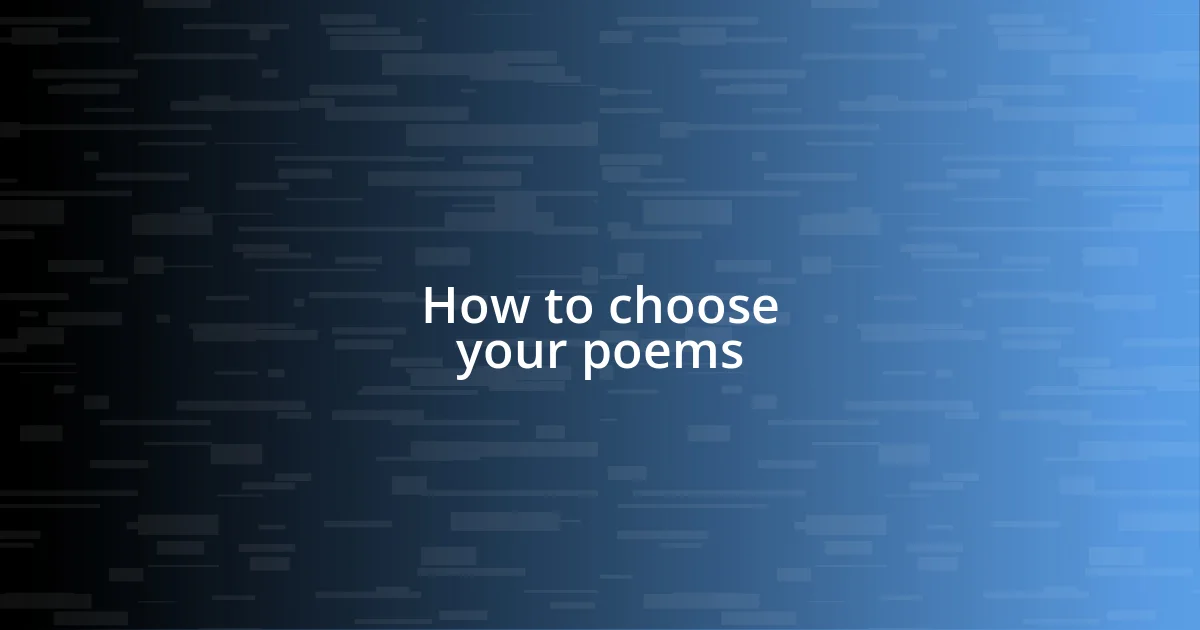
How to choose your poems
Choosing the right poem can make all the difference in your performance. I’ve often found myself drawn to pieces that evoke strong emotions, not just in me but in my audience as well. For instance, one time I selected a piece that delved into loss, and the way it resonated during my reading was palpable; people were nodding and teary-eyed. Consider what themes matter most to you, as these often translate to powerful performances.
As I navigated my own choices, I realized that accessibility matters. While I appreciate avant-garde works, I leaned towards poems that connect widely with the audience. I remember sharing a humorous piece about everyday frustrations, and the crowd erupted in laughter. This served as a reminder: poetry can evoke laughter and tears, so selecting pieces that inspire varying emotional responses can elevate your performance.
Lastly, don’t shy away from experimenting. I once tried performing a mashup of different styles—combining spoken word with lyrical poetry. The experience taught me that mixing forms can create something unique and engaging. Have you considered how your personal style could reshape the poem’s delivery? Embrace your voice, and let your selected pieces reflect who you are as a performer.
| Considerations | Insights |
|---|---|
| Emotional Connection | Select poems that resonate personally and evoke emotions in the audience. |
| Accessibility | Choose works that are relatable and can inspire responses from diverse crowd members. |
| Experimentation | Try different styles or formats to make your performance distinct and memorable. |

Tips for delivering your performance
When it comes to delivering your performance, presence is crucial. I remember my first time stepping onto the stage; my heart raced as I scanned the audience. I quickly realized that owning the space elevates your delivery. So, stand tall, make eye contact, and let your passion resonate; it draws listeners in, making them feel a part of your journey.
Practicing your piece aloud is another game-changer. I often recite my poems in front of friends, allowing their reactions to guide my pacing and emphasis. One evening, after a particularly engaging rehearsal, a friend pointed out how a pause before a punchline intensified its effect. Have you ever noticed how a well-placed pause can make words linger in the air? Trust your instincts and refine your timing through repetition; it will help convey your emotions more powerfully.
Lastly, don’t overlook the importance of authenticity. I vividly recall a performance where I read a piece reflecting on vulnerability, and it felt as if I were baring my soul. The audience’s response was overwhelming, and I felt an incredible connection emerge. This moment taught me that sharing genuine emotions cultivates rapport. So, embrace your truth, and don’t be afraid to reveal your vulnerability; it resonates deeply with others.
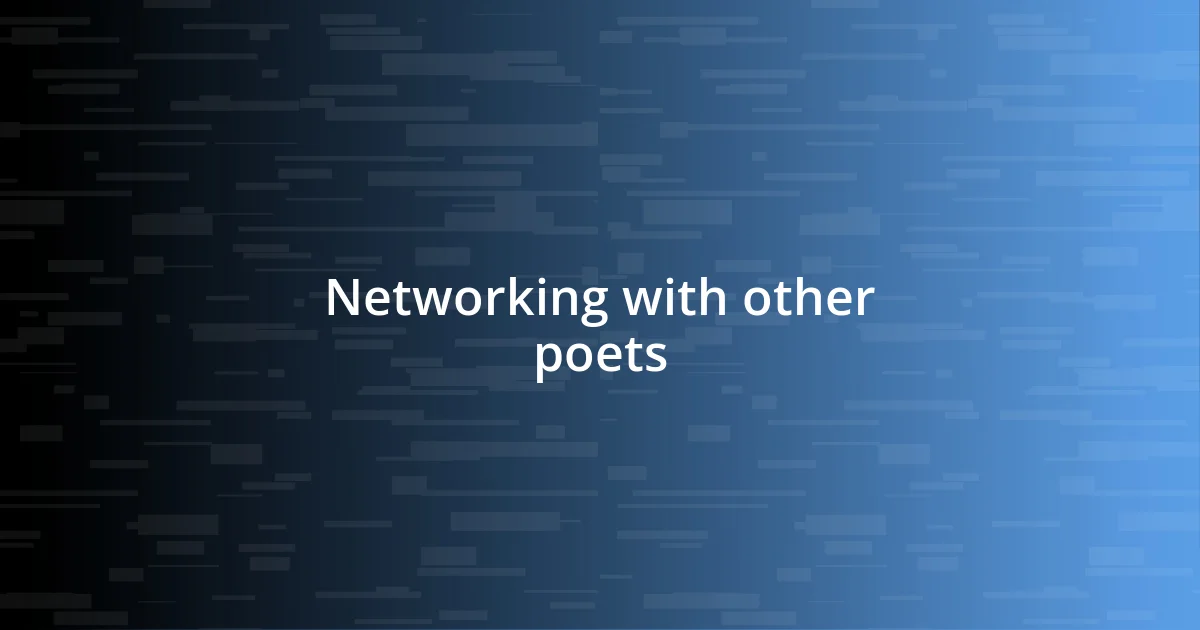
Networking with other poets
Building connections with fellow poets can be one of the most rewarding aspects of attending a poetry slam. I remember standing in the corner, nervously gripping my program, when a friendly poet approached me. We struck up a conversation about our favorite styles and inspirations, and suddenly, I felt less like a stranger and more part of a vibrant community. Isn’t it amazing how a shared passion can instantly bond people?
During the event, I made it a point to exchange contact information with several poets I met. Just the other day, I received a message from one of them inviting me to a local writing workshop. These interactions often lead to collaborations and opportunities that wouldn’t have arisen otherwise. I genuinely believe that nurturing these relationships can significantly enhance our growth as artists. Have you considered how networking might open new doors in your poetic journey?
Reflecting back, I realized how essential these connections are for motivation and inspiration. There’s something invigorating about sharing a space with individuals who understand the struggle and joy of creating. I once attended a post-slam gathering where poets exchanged stories about their writing processes. Listening to their journeys reminded me that while we all face challenges, we also share victories. It’s this sense of camaraderie that fuels our creativity and keeps us pushing forward.


